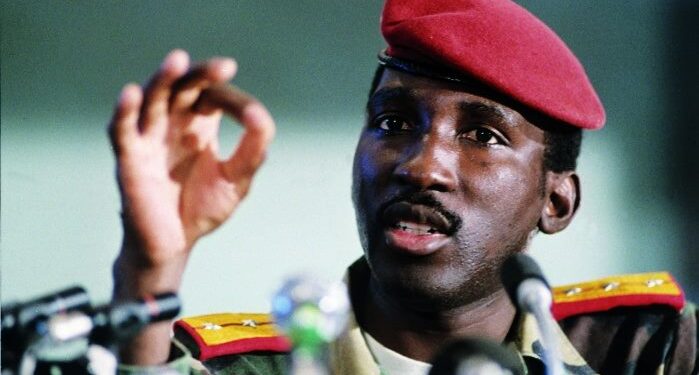The trial of 14 people facing charges in connection with the assassination of former Burkina Faso leader Thomas Sankara 34 years ago has started in the capital Ouagadougou.
Former President Blaise Compaoré is among those charged with the murder, but he is being tried in absentia as he has refused to travel from Ivory Coast, his country of exile, to attend the proceedings.
Sankara and 12 others were killed in a hail of bullets unleashed by commandos during a coup that brought Compaoré to power. The new president went on to rule the Sahel country for 27 years, until he was thrown out following mass protests in 2014. He fled to neighbouring Ivory Coast and is living there as a citizen. During his reign, it was taboo to discuss Sankara’s murder and nothing was done to bring his killers to justice.
Sankara died at the age of 37, four years after taking power. Four civilians and eight soldiers of the presidential convoy were killed with him at the headquarters of the National Revolutionary Council.
The trial, which started on Monday, October 11, 2021 before a military court, is a historic one in Africa, putting an end to more than 30 years of waiting for justice and has only come about after the exit of Compaoré, who has been blamed for the assassination of his former friend and comrade-at-arms. He has denied involvement in the assassination, and termed the trial political and riddled by irregularities. He has also insisted that he enjoys immunity as a former head of state.
Sankara was a hero in his country, then known by its French colonial name of Upper Volta, which he renamed Burkina Faso (Land of Incorruptible People) in 1984, a year after he assumed leadership after a coup. He was referred to as the “African Che Guevara” (after the Argentinian Marxist revolutionary who led a number of armed struggles, including in Cuba).
Sankara championed programmes for social, ecological, and economic change. He advocated women’s rights and outlawed female genital mutilation, forced marriages, and polygamy. He was seen as an anti-imperialist revolutionary who spoke for the oppressed and strengthened his nation’s sovereignty, especially from France. It has been suspected that French operatives were involved in his assassination.
However, human rights organisations have criticised Sankara’s radical left-wing policies as draconian. A 1986 Amnesty International report claimed that political opponents were detained without trial and tortured.
General Gilbert Diendéré, Compaoré’s former chief of staff, is among those on trial facing several charges, including “attacking state security”, “complicity in assassination”, and “concealment of bodies”.
Diendéré is in prison, serving 20 years for his role in a failed coup in 2015. Diébré Jean Christophe, the doctor who signed the death certificate, saying the former president had died from natural causes, is charged with falsifying a public document.
Hyacinthe Kafando, Compaoré’s former security chief who is accused of leading the group that executed Sankara and his entourage, is also being tried in absentia. He is in hiding and an international arrest warrant has been issued against him.



![Somalia's President Mohamed Abdullahi Farmaajo and Kenya's President Uhuru Kenyatta listen to speeches during Farmaajo's inauguration ceremony in Somalia's capital Mogadishu [Feisal Omar/Reuters]](https://jfjustice.net/wp-content/uploads/2021/10/RTSZT5N-75x75.jpg)



